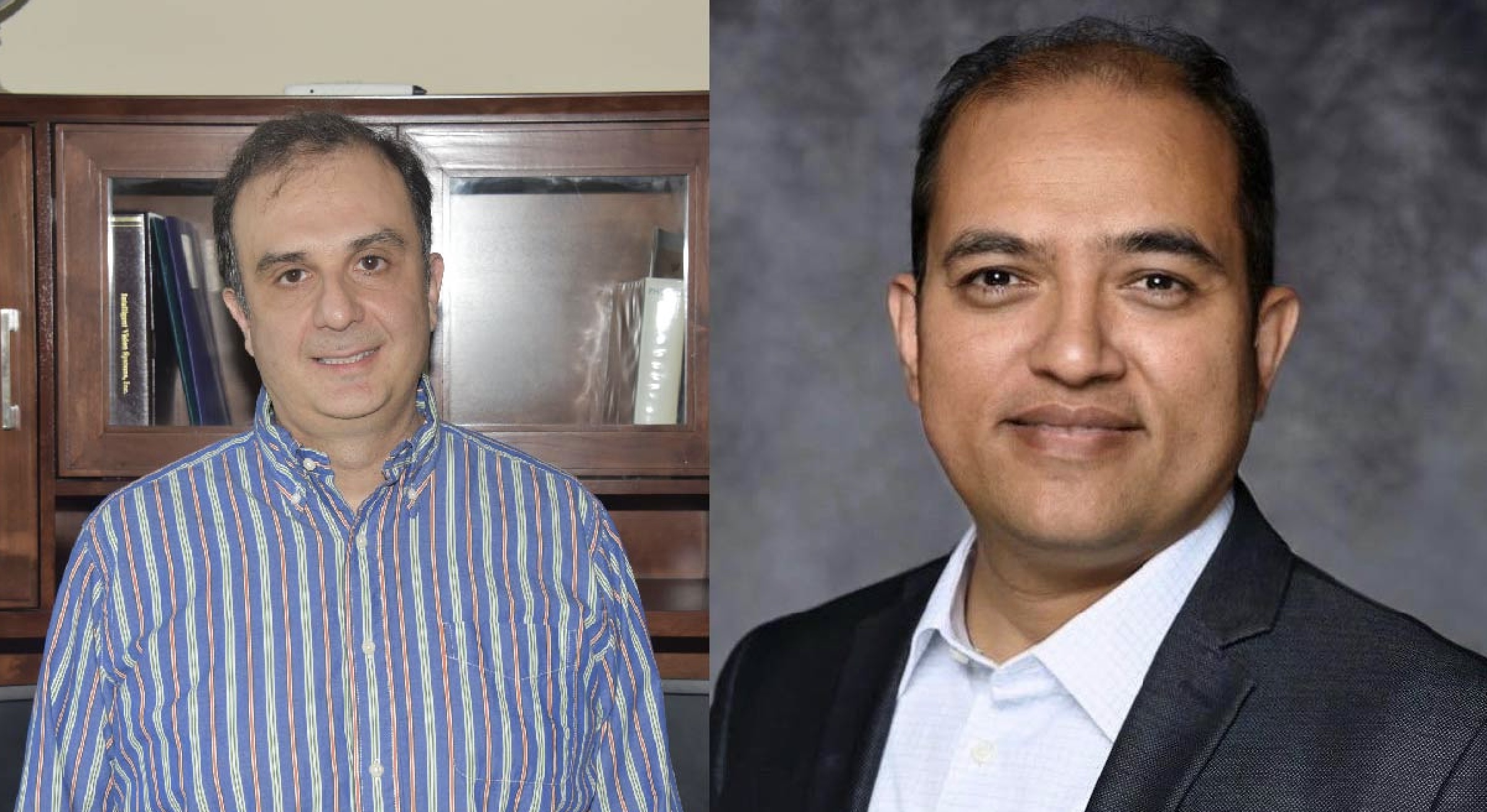
IHER Center researchers recap latest summer achievements
Researchers at the Interdisciplinary Health Equity Research (IHER) Center have made leaps and bounds this past summer, in their respective research projects as well as in various presentations, publications, and further grants. Their accomplishments represent the milestones of progress in health equity research, and they also offer an opportunity to celebrate the culmination of their efforts to investigate the health issues facing communities in Delaware and beyond.
Dr. Sokratis Makrogiannis
Dr. Sokratis Makrogiannis, who leads an IHER Center project which investigates machine learning-based imaging biomarkers for metabolic and age-related diseases, has recently celebrated an accomplishment by one of his Ph. D. students, Ms. Chelsea Harris. Ms. Harris received an award for best oral presentation at Virtual Imaging Trials in Medicine, an international conference held at Duke University.
In this remarkable achievement, Ms. Harris’s presentation, entitled “Evaluating breast density classification by sparse approximation classifiers and deep networks using simulated digital mammograms,” was selected as the winner against a high-level field comprised of a number of other presenters from such institutions as the University of Pennsylvania, Duke University, among others.
Dr. Makrogiannis and his research group have also presented two papers in the IEEE International Symposium on Biomedical Imaging (ISBI), a top 2 conference in the field of biomedical medical image analysis, held in Athens, Greece. The papers are entitled, “A Joint Scale Analysis And Machine Learning Framework For Cell Detection And Segmentation In Time Lapse Microscopy (DOI: 10.1109/ISBI56570.2024.10635875)” and “Mammographic Breast Density Classification by Integration of Deep Dictionaries and Multi-Model Sparse Approximations (DOI: 10.1109/ISBI56570.2024.10635360).”
Dr. Makrogiannis has also worked as a Co-PI with Dr. Weiss of MIT and Dr. Das and Dr. Tanner of the University of Delaware on the NSF CPS grant, “CyberOrganoids: Microrobotics-enabled differentiation control loops for cyber physical organoid formation.” Therein, the DSU team is developing a vision-based cell and micro-robot tracking system using time-lapse fluorescence microscopy data to provide feedback for closed-loop microrobot swarm control. This is a three-year grant with an award level of $1,200,000.
Dr. Makrogiannis was also awarded an NSF EIR grant, entitled ”Mapping of Natural Disasters by Deep Subspace Learning in Multi-band and Multi-spectral Satellite Images.” This is a collaborative work between Dr. Makrogiannis and Dr. Chandra Kambhamettu of the University of Delaware as a Co-PIs, with a grant duration of three years and an award level of $911,000.
Moreover, Dr. Makrogiannis and his research group maintain the following public code repositories to share with the research community: for thigh tissue segmentation and quantification in MRI data, and for cell segmentation, tracking and quantification in time-lapse microscopy data.
Dr. Shahidul Islam
Dr. Shahidul Islam, an Associate Professor in the Department of Chemistry, leads an IHER Center project researching immunotherapies for Triple Negative Breast Cancer. This past summer, Dr. Islam received a $200,000 NSF CREST-CHE planning grant for the establishment of the Center for Renewable Energy and Biotechnology (CREB). The CREB center will bring together scientists to create new materials and technologies that will advance sustainable energy to combat climate change, such as improved solar panels, batteries, and biofuel. The project also aims to involve students, particularly those from underrepresented backgrounds, providing them with valuable experience and skills in science and technology.
Dr. Islam has also completed recent grant submissions for research in “Advancement of Neutralizing Nanobodies and Proteins for Peanut Allergy Tolerance and Detection,” and “Computational-Experimental Screening of Peptides for Triple Negative Breast Cancer Targeting and Therapy.”
He has had a recent article pertaining to COVID-19 research published, “SARS-CoV-2 Resistance to Small Molecule Inhibitors. Curr Clin Microbiol Rep 1–13.” (https://doi.org/10.1007/s40588-024-00229-6.)
This study summarizes developments in small molecule antivirals targeting SARS-CoV-2 viral proteins, including their potential for developing resistance against emerging variants. This contributes significantly to the understanding of resistance in SARS-CoV-2 and has important implications for the ongoing efforts to combat the pandemic. The results of this study can furthermore inform surveillance strategies and provide critical insights into antiviral development.
Over the summer, Dr. Islam has presented at meetings in Toronto and North Carolina, as well as at the NSF Outreach Conference at the University of New Hampshire and the RCMI National Conference in Bethesda, Maryland. Dr. Islam has also recently presented posters at over ten events, including at the Protein Engineering Summit in Boston this past May.
Three of Dr. Islam’s students have received awards at the recent Annual Delaware State University Summer Research Symposium, including Wahed, R., Green, N., and Shah, K.K.

